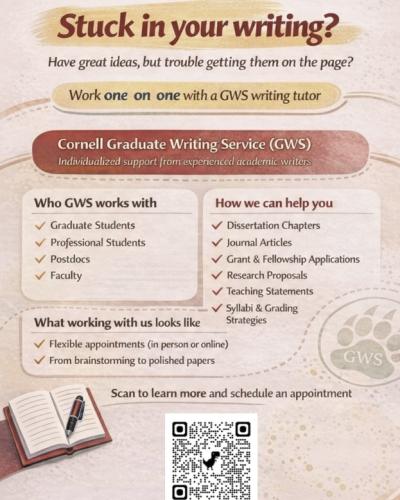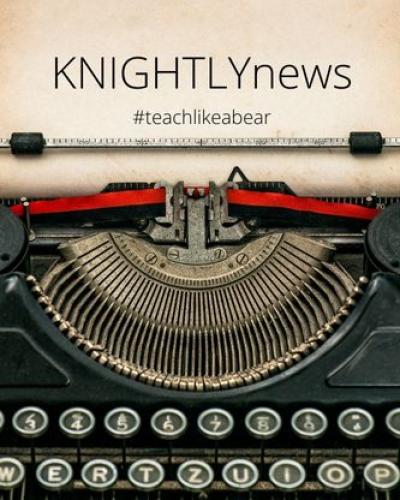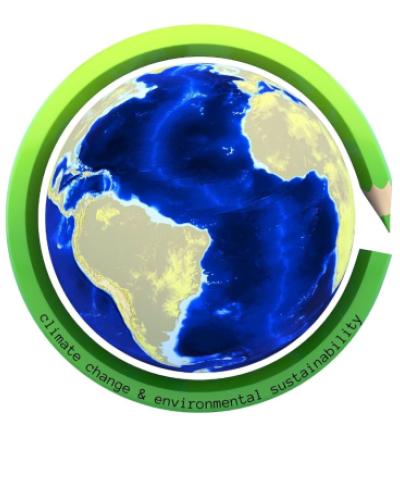This fall, students will research and write about topics related to climate change and environmental sustainability in these First-Year Writing Seminars:
ARCH 1901 SEM 101 | Diasporic Architectures and Environments (Priyanka Sen)
What defines “diaspora” and how does this discourse shape architecture and the environment? How might larger global issues such as climate change, human rights, migration patterns, and continued economic disparities contribute to forms of diaspora? How do these affect the built environment? In this course, we will examine these intertwined questions by studying a broad range of twentieth century global diasporic trajectories, focusing on themes like spatial representation, defining architectural sites as home(land), gendered migration, and diasporic connections to land. The course includes a wide selection of readings from architectural history, science and technology studies, environmental history, and gender studies, as well as other mediums including film and literature. Students will engage in diverse writing tasks including a film review, short narrative essays, and creative writing exercises.
ARCH 1901 SEM 103 | Space and Power: Landscapes of Control and Resistance (Maria Luisa Palumbo)
How does power inform the organization of physical space? We will put architecture into conversation with political theory, geography, anthropology, and philosophy. We will read and write about the relevance of space for the production of colonialism, capitalism, nation-states, race, and gender, as well as for the search for new balances and ecologies. Authors will include—but also move beyond—influential theorists of power and spatial organization such as Foucault, Lefebvre, and Le Corbusier. We will ask, can histories of architecture and landscape help us to understand the emergence and functioning of colonialism and capitalism? Written responses to readings and peer group work will lead to longer essays and independent projects.
ASIAN 1111 SEM 101 | Embodied Deep Ecological Living (Yanting Li)
How to negotiate the flood of news of environmental disasters? What is required of being a human responsibly in the biosphere? This seminar is designed for students who have genuine interests in practicing deep ecological living. Together, we will think through the questions above and many more. Throughout the semester, you will be guided to develop your “auto- theory” of eco-criticism, and apply your auto-theory to creative projects relevant to your interests and expertise (art, community or business project, etc.). Potential writing assignments include curatorial statement, manifesto of deep ecology, etc. Potential readings and viewing materials include Dao De Jing, George Bataille, Anna Tsing, poems by Gu Cheng, Timothy Morton, Chinese artists Xu Bing and Guo Fengyi, Princess Mononoke, etc.
BIOEE 1640 SEM 101 | Ethno-Eco-Botany: Exploring the Natural World Through Traditional Knowledge (Camille Blevins)
How can we cultivate a deeper connection to the natural world by using lessons from traditional knowledge? This course will delve into concepts in ethno-eco-botany, allowing students the unique opportunity to explore this intersection while developing strong writing skills that can be used throughout their time at Cornell. Throughout this course, we’ll explore diverse forms of traditional knowledge, focusing on a variety of cultures and how they leverage their strong connections to their environment. Therefore, this course aims to foster an understanding of the connection between humanity and the natural world. Students can expect to read both scholarly work and readings from Robin Kimmerer’s repertoire. Writing assignments will include grant proposals, descriptive natural world observations, an argumentative essay, and a reflection essay.
BIOEE 1640 SEM 103 | Sand and Surf: Beach Biology, Geomorphology and Conservation (Heath Cook)
Did you know that beaches make up 70% of the world’s coastlines? Probably not, as beaches are one of the most poorly understood coastal habitats. This course aims to teach you about their biology, geomorphology, and conservation as these popular holiday spots face increasing threats, including sea-level rise and urban development. During the course, we will develop a range of written pieces to educate scientific and non-scientific audiences on these overlooked habitats. We will also focus on learning to search for and read scientific literature, paraphrasing text from other sources, and citations/referencing using Zotero. This is the perfect course to transport you mentally out of the Ithaca’s fall semester as the temperature starts to drop, while improving your writing, and increasing your awareness of these unique and threatened habitats.
COMM 1105 SEM 101 | Action or Despair? Media Representations of Climate Change (Andrei Guruianu)
How we think about the climate crisis is shaped by the stories that various media tell us about our relationship with nature. From films such as The Day After Tomorrow and Elizabeth Kolbert’s book Field Notes From a Catastrophe to Banksy’s street art and news reports, we are presented with a vision of the future filled with despair and hopelessness. Do such messages work to raise awareness and drive change, or do they instill a sense of fatalism that prevents us from taking meaningful action? In this course we will think and write about how climate change is conceptualized and communicated in a range of assignments including critical interpretation of texts, a comparative analysis paper, a book or film review and a researched argument essay.
CRP 1109 SEM 101 | Cities and Regions: Transformative Climate Justice (Yousuf Mahid)
Whose knowledge counts concerning the climate-change solutions, and how does the knowledge translate into action? This course emphasizes such questions and centers on systemic oppression in conceptualizing "transformative approaches" to climate justice. Course questions will assist students in thinking critically about the complexity of the climate crisis and prepare them for writing assignments. The course readings draw primarily from critical scholarship grounded in multiple disciplines involving geography, anthropology, history, and planning. The writing assignments in this course help students form their values and empathy toward the planet Earth, reflect on a personal level, and strengthen their skills for effective communication. These assignments include expository essays, critical reflection, book reviews, etc.
ENGLISH 1105 | Writing and Sexual Politics: Visionary Futures of Queer Space (Ariel Estrella)
In the shadow of the anthropocene, escaping the disaster of climate change, capitalism, and pollution becomes more and more attractive than its alternative: healing Earth 1.0 to mitigate the permanent impact of colonialization’s global impact. In this class we will look to queer writers and artists as guides toward visionary futures. We will engage speculative poetry, games, movies, art, and articles that explore (literal) queer space. Through the development of our own writing, we will reflect on connection, sustainability, loss, and hope in our encounters with the queer interstellar and beyond.
ENGL 1130 SEM 101 | Writing the Environment: Place and Displacement (Samantha O'Brien)
What does it mean to write and read about “place”? How can language help us celebrate and make sense of the physical world? In this course, we will explore the notion of “setting” in literature, film, and art more broadly with a particular attention to indigeneity, ecological disaster, and memory. Writing assignments will range from profiling a place of choice to literary analysis. Art explored in this course may include: essays by Robin Wall Kimmerer, fiction by Lauren Groff and Samanta Schweblin, and films by Hayao Miyazaki.
ENGL 1130 SEM 102 | Writing the Environment: Eco-Anxiety—Apathy to Action (Imogen Osborne)
In March 2017, the American Psychological Association validated the notion of “eco-anxiety”—defined as a “chronic fear of environmental doom”—by publishing a primer on therapeutic practice in an era of ecological disaster. In this course we will study the writings of activists and leaders promoting environmental change alongside works of literary fiction, poetry and nonfiction that grapple with the psychological effects of environmental disaster. Texts include Robin Wall Kimmerer’s Braiding Sweetgrass, Jorie Graham’s To 2040, Hiyao Miyazaki’s Princess Mononoke amongst others. Writing assignments will span critical and creative projects, encouraging students to reflect on and generate ideas about the role reading, writing and communication can play in recovering a sense of empowerment and community in the face of global disaster.
ENGLISH 1167 | Reading Now (Juan Pablo Albornoz Rodriguez, Jie Hui Zhou, and Lauryn Jones)
Reading is experiencing a new revolution in the twentieth and twenty-first centuries. We still read paper books, but we also read by scrolling on screen, through search engines, and in images and memes. What kinds of texts are emerging in this new era, and how do we read them? How do writing—and our ways of reading—connect with the urgent topics before us now: technology and social control, truth and media, climate change and apocalypse, identity, equality, and human rights? This course will examine the past twenty years of writing in a variety of genres, printed and/or online, from fiction to memoir to poetry and beyond. As we read, we will explore and discover the forms that our own writing can take in response.
ENGL 1168 SEM 110 | Cultural Studies: Communicating Climate Change (Caroline Levine)
Many of us like stories of personal experience. But this preference for stories on the individual human scale may be one reason that contemporary societies have struggled to develop effective responses to climate change: ordinary storytelling modes aren’t adequate to the long time spans and vast reaches of environmental change. This course will ask you to read, write, and design many different forms and genres in order to experiment with the problem of communicating climate change, from pie-charts to science fiction and from poetry to documentary film. What can each form tell us about climate change that the others cannot?
ENGLISH 1168 | Cultural Studies: Comic Books! Graphic Novels! Transmedia! (Jon McKenzie)
Graphic novels and comics have long mixed research and storytelling. From Maus to Logicomix to Fun Home, graphic novels tackle complex historical, philosophical, and literary issues. The For Beginners and Introducing...comic books series include such titles as Climate Change for Beginners, Black Women for Beginners, Quantum Theory, Mind and Brain, and Derrida. Finally, the field of graphic medicine translates medical science for at-risk communities. Supporting Cornell’s public mission of community engagement, this course teaches students to read and compose argumentative essays, info comics, multimedia presentations, and other forms of transmedia knowledge. Students learn critical and creative skills for sharing research with specialists, community members, policy-makers, funding agencies, and the general public using software such as Word, Comic Life, and PowerPoint.
GDEV 1200 SEM 101 | Reading the Landscape: Ecology, Power, and Transformation (Emily Baker)
The complex challenges facing our world today demand a different approach. By taking a long view on social and ecological transformation, we are better prepared to envision futures for our collective thriving. This course draws upon history, ecology, and critical social theory in interdisciplinary explorations of landscapes and life on the land. We will read cases from the US and across the world, including work from Robin Wall Kimmerer, Ivette Perfecto, and Annie Proulx. Through online storytelling, grant proposals, argumentative essays, personal narratives, and research essays, we will build competence and confidence in successful, evidence-based writing that transfers across disciplines.
GLOBAL DEVELOPMENT 1200 | Tracing your Stuff: The Politics of Consumption (Aman Banerji)
We live in a world of things. Even our most intimate possessions come from thousands of miles away, connecting us with workers and ecologies we know little about. How can we understand our histories, our political choices, and our global connections through the things we consume? Together, we will think critically about the link between our products and the many crises of our times—environmental, social, racial, and economic. We will read accounts by historians, geographers, sociologists, and anthropologists of the travels that everyday objects like mushrooms, coffee, cotton, salt, and even iPhones make on their way to us. Students will build their research, analysis, and writing skills by tracing the interconnected geographies of their favorite things and examining how commodities shape our world today.
HE 1151 SEM 101 | Children’s Environmental Identity: Awareness to Action (Abigail Brown)
How did your childhood experiences shape your connection with nature? What stories do we tell children about environmental issues? How can we design children’s learning to support pro-environmental behaviors? This seminar will leverage formal and informal writing as a vehicle for understanding and supporting environmental identity development (EID) from childhood and throughout life, particularly in the face of environmental crises. Students will journey from self-reflection through academic exploration of EID to the analysis and comparison of media like children’s books and TV shows. Students will ultimately develop their own children’s media to enhance EID and environmental action. To inform these exercises, students will engage with their own experiences, children themselves, and with a range of materials including scientific literature, news articles, and children’s books.
HE 1151 SEM 102 | Environmental Justice and the Consumer (Paige Tomfohrde)
Today’s consumers confront a myriad of problems: environmental impacts, social justice concerns, and aligning consumer roles with personal values. This writing intensive course asks students to consider environmental and social justice passions and engage with them in a series of written assignments designed to help you learn how to engage with written activism. Using an environmental justice approach grounded in intersectionality, this course explores our roles as consumers in and outside of capitalism, our relationship with the products we buy, and the connection we have (or don’t) to the corporations and individuals who sell and make our things. Embracing written work from activists, journalists, and scholars, we will work together to shape our own ideas of environmental justice activism in the consumer landscape.
HUMAN ECOLOGY 1152 | Exploring Biomedical Textiles in Health and Sustainability (Mohsen Alishahi)
Textiles are ubiquitous in modern life and have implications for both health and sustainability. Textile applications to healthcare can span from conventional textiles such as sheets, gowns, and face masks to more complicated ones such as wound dressings, textiles to control pain, and textiles implanted inside the body. Biomedical textiles also present sustainability challenges such as material sourcing, waste management, and antimicrobial resistance. Through engaging discussions, reading scientific articles and news, and practical writing assignments on each specific topic, students will learn to communicate effectively about complex scientific concepts of the fabrication and application of biomedical textiles. By taking this course, students will gain insight into writing op-eds, posters, basics of scientific articles, as well as crafting proposals in the field of medical textiles.
WRIT 1450 SEM 101 | Communicating Big Ideas: Climate Change Rhetoric (Scott Sorrell)
Record heat and historic floods, epic droughts and raging wildfires. These are just a few examples of how the world is changing due to anthropogenic (or human-induced) climate change. increasingly being In this class we will read and write about issues of environmental justice from different genres and disciplinary perspectives. Some of the questions we will address include: how scientists talk to policy makers, how young people connect to the natural world and each other, how indigenous people make use of traditional knowledge to keep the land in balance, and how people across the globe speak out for climate justice.





